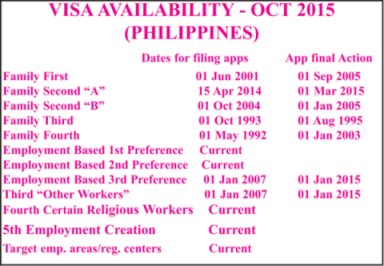By: Robert Gard
In law, as in medicine and other disciplines, there is often more than one treatment, modality, or course of action that may be taken to achieve a desired outcome. A different approach may not be wrong or any less viable; just different. Then again, it could be wrong. This certainly doesn’t make it any easier to select the “right” legal counsel for your particular immigration matters. Often, persons seeking legal counsel will schedule an appointment for a consultation with a particular attorney or law office. Some people do some research before scheduling a legal consultation to help them frame the issues, determine relevant or critical facts, and, perhaps, outline alternative strategies for resolution of their issues. Even those persons who have already retained counsel may want to consult with another attorney for a second opinion, even when perfectly satisfied with the legal representation they have been receiving from their attorney. To get the most value out of a legal consultation, you must be prepared and do your “homework” ahead of time.
Being prepared for your initial consultation is the key to getting your attorney/client relationship started off on the right foot. Depending on the complexity of issues, the normal length of an initial consultation is approximately from fifteen minutes up to an hour, and the initial consultation may be without charge or a nominal fee may be charged. Consultations may be done in the attorney’s offices, by telephone, video chat or email. Often, as in our offices, the charges for an initial consultation may be credited against the attorney’s fees for a matter if a file is opened for that matter with our offices within a reasonable time after the consultation. Therefore, it is important that you take the following steps to maximize the value of your consultation, whether it is in person, telephonic or even by email:
ip #1 – Create a Chronological (organized by time of occurrence) Summary of Your Immigration Case
Organize your immigration paperwork in chronological order, and put a cover sheet on top to show the attorney your immigration history at a glance. Example:
3-1-05 Entered U.S. on F-1 Student Visa
3-30-09 Graduated with B.S. in Computer Science from Northwestern University
4-10-09 to 4-10-10 Optional Practical Training – Worked as Computer Professional for Geeks R’ Us – $55K/year
10-1-10 Change of Status to H- 1B – Systems Analyst – Sun Microsystems – $75K/yr.
10-1-13 Three year H-1B extension granted
5-1-14 PERMApplication Filed
4-5-15 PERMApplication Approved
5-1-15 I-140 Filed under Employment-Based Third Preference category (approved Aug 2, 2015).
Reason for Consultation: I am consulting with an immigration attorney because I want to change employers as soon as is possible, and I also want to continue the required processing for my permanent residency.
Tip #2 – Present all Relevant Documentation
Always show the attorney your Passports (including all expired/cancelled passports) showing all of your visas and all of your entries into the U.S., your I-94 Arrival/Departure Record card (or electronic admissions records from the CBP website), and copies of all approvals and denials issued by the government. Also, provide complete photocopies of the passports and I- 94 card, if available. If available, please provide clear and legible copies of any previous applications or petitions filed by you or on your behalf, together with copies of all supporting documents (including birth/marriage divorce records and school records and diplomas/ transcripts), as these would also be very useful for review at any consultation.
Tip #3 – Removal or Deportation Proceeding Information
If you are now (or have ever been) in Removal (previously called “Deportation”) Proceedings, make sure the attorney gets to read your Notice to Appear, the notice for your next hearing, copies of all applications for affirmative relief, approvals, denials, appeal briefs, etc.
Tip #4 – Arrests
If you have ever been arrested, show the attorney a copy of the complete record (charge, plea, judgment and sentence). DON’T just tell the attorney that “I was convicted of 415 P.C., spent 10 months in prison, but I didn’t really do it.” If possible, have court certified copies of dispositions of any and all arrests available for review. If you were ever called into or brought into a police station and fingerprinted, even if no charges were filed, or the case was dismissed, or even if the arrest was expunged from your records, or you received a pardon, a record of that fingerprinting will show up at the federal level when fingerprint checks are done in your immigration matter, and that previous fingerprinting will need to be explained and documented in detail.
Tip #5 – Prior Representation
If you have been represented by any other immigration attorneys, provide the attorney at your consultation with the name(s), address(es) and other contact information for your previous attorney(s) or other legal counsel(s). If you know that a previous attorney has been subjected to disciplinary proceedings (suspension or disbarment), please advise the attorney at your consultation. You may need to make some inquiries with current or former employers if you have been previously represented by attorneys provided by current or previous employers. If you were previously represented or assisted by someone who may not have been a licensed attorney (such as an “agent” or “broker”, or community-based “consultant” or “notario”) please provide as much detailed information as possible concerning that individual or company who has assisted you in previous immigration matters.
Tip #6 – Do some research before your consultation
While it is helpful to let the attorney know whether you would like to stay in the U.S. only temporarily or on a permanent basis, your consultation will be more productive if the initial question is not “How can you help me stay here?” To maximize the value of the time of the consultation, if you have the time, you should do some preliminary research on the Internet or at the library. For example you might want to know the difference between an H-1B, an L-1A and an E-2 visa.
You might also know what an EB-1 (Employment-Based First Preference Immigrant Visa Category), an EB-2 and an EB- 3 are. Not to worry if you don’t, that is why you are seeing an attorney. But, the more you know about your immigration situation before your consultation, the better the value of the consultation.
Tip #7 – Questions
The consultation should be interactive. In addition to being prepared to explain your situation, and answer the attorney’s questions, you should also write down a list of specific questions in advance, and show them to the lawyer at the beginning of your consultation. This list can include broad issues, with follow-up questions or more detailed specific questions to be asked that are dependent upon the answers to the broader questions.
Tip #8 – Tell the Truth
Always tell the attorney the complete and unvarnished truth. He or she is trying to help you, and is on your side. He or she does not work for the Department of Homeland Security, or any other government agency, and is not going to turn you in even if you advise the attorney that your stay in the U.S. is not legal. The attorney has a duty to keep what you tell them confidential. Lying to the attorney is like cheating at solitaire. You are only hurting yourself. Do not ask the attorney to assist you in covering up past or current immigration fraud, or to participate in any way in advancing a case based on fraud or misrepresentation, though you should always advise the attorney if any documentation that you may have used in the past to gain admission to the U.S. or to apply for employment authorization or any other immigration benefit was fraudulently obtained, or forged/altered. If the attorney will be asked to (and agrees to) represent both you and a second party (a family member or employer/ employee), please understand that the attorney may not be able to keep all of the information from the other party, who is also a client on the same matter. If you are not clear on how this works, please ask the attorney to explain further.
Tip #9 – Reveal everything
This is not the time to be modest or embarrassed. If you are HIV positive, arrested for soliciting a prostitute, were convicted of shoplifting or your marriage is falling apart, the lawyer needs to know.
If you were ever arrested abroad, even for what you may believe were political reasons, the attorney needs to know, and any records of that arrest must be shown to the attorney. If you have lost or misplaced documentation of your lawful admission to the United States, the attorney needs to know so that steps can be taken to replace that documentation or otherwise establish lawful admission. Similarly, if you were nominated for a major award, earn a high salary or just returned from your honeymoon in Cuba, be sure to tell the attorney.
Tip #10 – The Federal Nature of Immigration…These days, it is important to select an attorney based on his/her experience. The geographic location of the attorney is usually not critical, since the practice of immigration law is generally a federal practice as opposed to a practice involving a particular State’s body of laws. Many of our clients reside in other states and we obtain temporary visas and green cards for them without ever meeting them in person.
Keep in mind that you are seeing an attorney for a consultation, and that the consultation does NOT mean that the consulted attorney has agreed to represent you or accept your case. If the consulted attorney agrees to represent you and you want that attorney to represent you, the attorney will usually ask you to enter into a written agreement setting forth the limited scope of representation and the terms and conditions of that representation. The attorney/client relationship is not intended to exist until that agreement is executed and accepted by both you and the consulted attorney, and the other administrative procedures for accepting a matter (including a check and review for conflicts of interest have been complied with and completed.
Quick Notes: USCIS has recently updated and issued revised versions of many immigration forms. USCIS will generally provide a short “grace period” during which the new version or the previous version of a revised form may be used, but after the grace period expires, any application or petition submitted to USCIS on an obsolete or discontinued version of a form will be rejected and returned by USCIS. This can result in significant delays in re-submitting the application or petition on the new version of the USCIS form, and such a late filing could have serious consequences affecting one’s immigration status or eligibility for the immigration benefit sought. PH
 VIA Times – September 2015 Issue Vital News, Vibrant Views for Asian Americans in Chicago & Midwest
VIA Times – September 2015 Issue Vital News, Vibrant Views for Asian Americans in Chicago & Midwest



